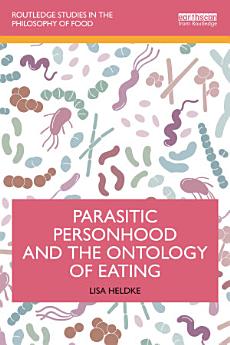Parasitic Personhood and the Ontology of Eating
About this ebook
These realities should—but often do not—profoundly shape our understanding of personhood. This book explores “parasitic personhood,” an alternative to atomistic individualism that acknowledges the biological individual as a network of persistent biological relationships (a “holobiont”) and draws insight from the astonishing frequency and variety of parasitic feeding relationships. What happens to our conception of personhood if we consider parasitism as more than just a threat to our health? Parasitism is a remarkably common form of life; however, we tend to think of parasites only as dangerous pestilential organisms that should be eliminated. What if parasitism—in particular, persistent eating relationships that threaten to destabilize host organisms—were instead the model in terms of which we understood what it means to be a person? What if we acknowledged the ineliminability—indeed, the centrality—of parasitism to life and embraced both the persistent eating and the precarity that they entail as central to our understanding of personhood? In advocating for parasitic personhood, this book joins a history of efforts to uproot atomistic individualism, the remarkably durable understanding of personhood that is aptly portrayed by its most well-known eighteenth-century model, the billiard ball: smoothly self-contained, with relationships decidedly external to it. The parasitic alternative conceives persons as collections of organisms in relationships that are, by turns and all at once, essential, precarious, definitive, destabilizing, stable, and shifting. The book asks: in what does parasitic personhood consist? It goes on to examine some implications of this conception of personhood: how is moral agency constituted for the parasitic person, and how does parasitic personhood expand our understanding of aesthetic engagement and appreciation? This book will absorb anyone who is interested in thinking about the metaphysical significance of their need to eat and their reliance on myriad other organisms to enable them to do so.
It will engage students and scholars of food and eating, particularly those working on the metaphysics of food, food and personhood, fermentation, and the microbiome, as well as philosophers considering the ontological significance of food and eating.
About the author
Lisa Heldke is Professor of Philosophy at Gustavus Adolphus College, USA. She is the author, co-author, or co-editor of several works on the philosophy of food, including Exotic Appetites: Ruminations of a Food Adventurer (Routledge, 2003); Philosophers at Table: On Food and Being Human; Cooking, Eating, Thinking: Transformative Philosophies of Food; and The Encyclopedia of Food and Agriculture Ethics.




